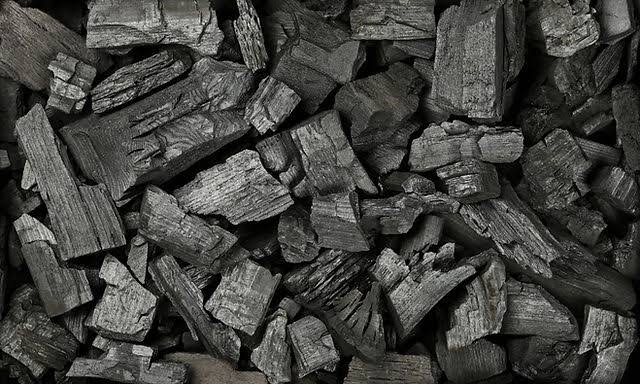ECONOMY
Stakeholders back afforestation for charcoal trade, export

The National Association of Charcoal Producers, Dealers, Exporters and Afforestation of Nigeria (NACPDEAN) and stakeholders have stressed the need for aggressive afforestation and reforestation in sustaining the charcoal sub-sector.
They made the call at a stakeholders consultative meeting with government agencies organised by NACPDEAN, on Thursday in Lagos.
The event had the theme: “Sustainable Afforestation and Reforestation for Nigeria’s Posterity”.
The stakeholders said the call became necessary to increase the contribution of the charcoal sub-sector to the diversification drive of the economy, from oil to non-oil exports.
Our correspondent reports that afforestation is the process of planting trees in new areas not previously covered by trees, thereby creating new forest.
Reforestation is the process of planting trees in forests that have experienced decrease in the number of trees.
The National President, NACPDEAN, Mr Babatunde Edu, said the event was designed to reposition the charcoal sub-sector as one of the drivers of the economy.
Edu added that it was organised to facilitate the aggressive planting of trees and conversion of wastes to domestic and industrial charcoals.
He said the discussions would go a long way in opening the economy to local and foreign investors in the afforestation and reforestation programmes, while encouraging entrepreneurial development and self-reliance.
“Charcoal is an exportable commodity, and its global market in 2021 was valued at $6.05 billion dollars, $5.98 billion in 2020, and the market size is estimated to reach $8.09 billion dollars 2028.
“Nigeria is ranked as the largest charcoal producer in Africa and second largest in the world, and as of 2020, Brazil, Nigeria and Ethiopia, produced 6.3 million tonnes, 4.8 million tonnes and 4.7 million tonnes respectively, and shared 29 per cent of the global production.
“The global review of economic indicator by the World Bank in 2020, noted that, Indonesia, China, Poland, Nigeria and Ukraine were the world’s largest exporters of charcoal with export earnings of $289 million, $153 million, $90.8 million, $75.7 million and $74.7 million, respectively.
“The rating is good for the nation’s economic growth provided the nation sustains it, through the establishment of more private forest estates and aggressive afforestation programmes sustainability,” Edu said.
He said the association was passionate and committed to afforestation and reforestation noting they were the keys to sustainable forestry and charcoal business.
“The United States of America and China are developing and promoting wood charcoal sub-sector due to its economic uses in medicine, cosmetics, industry and household, and Nigeria cannot be an exception.
“The focus of NACPDEAN is to fully embark on agrisilviculture (integration of trees and crops), establishment of more private indigenous plantations and creation of industrial alternative charcoal that will not come from wood but shafts and waste for the economic growth and development of Nigeria”, he said.
Edu added that NACPDEAN had started taking drastic steps to regulate the charcoal sub-sector with a concrete commitment to putting a stop to the illegal production and trade of charcoal.
The president added that the purpose of the event was to engage the stakeholders on the need for Charcoal National Association’s Compliance Requirement for all charcoal stakeholders along the value chain.
This, he said, was to enable the private stakeholders to replace the trees that were cut for exportation by ensuring aggressive afforestation and reforestation projects, since only the government cannot handle afforestation in the country.
“We also want to assist the government on charcoal data and manage the nonchalant attitude of charcoal stakeholders toward afforestation by ensuring that a little export and trade proceed is paid and channelled to replanting of trees in the country,” he said.
The Minister of Environment, Mr Muhammed Abdullahi, represented by Dr Peter Bagudu, a Deputy Director, said the event was timely, following the recent lift on the ban on the exportation of processed wood, charcoal and other allied products.
Abdullahi said the lift on the ban was necessary due to the increasing cases of illegal logging and charcoal/wood exportation through illegal routes with attendant daily revenue loss.
He, however, noted that strict and coherent measures had been put in place for effective wood trade regulation and control in the country to eliminate illegalities in the sector.
According to him, some of the measures include: Review of Guidelines on Exportation of Processed Wood, Charcoal, and other Allied Products; Nigeria Timber Legality Standards; Constitution of the Inter-Ministerial Joint Task Force on illegal forest activities.
Mr Jude Amalunweze, Assistant Director, Commodities and Export Department, Federal Ministry of Industry, Trade and Investment, pledged continued support, adding that the ministry was committed to providing an enabling environment for the charcoal sub-sector to thrive.
Also, Mrs Francisca Odega, representative of the Nigerian Export Promotion Council, urged members of the association to register their businesses with the council and other relevant agencies to facilitate trade and export of their goods.
It was reprted that other government agencies represented at the event include Nigerian Shippers’ Council, National Environmental Standards and Regulations Enforcement Agency, Nigeria Customs Service, Raw Materials Research and Development Council.




 Davido's Net Worth & Lifestyle
Davido's Net Worth & Lifestyle 
